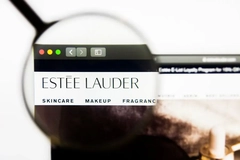Vyld enters “algaeverse” to create sustainable and microbiome-friendly kelp tampon

26 Sep 2024 --- The switch to sustainability in personal care extends to period products with MyMicrobiome and German biomaterials start-up Vyld revealing the “world’s first” microbiome-friendly certified tampon made from kelp.
Personal Care Insights speaks to Ines Schiller, CEO of Vyld, about why the company developed an ecological solution for menstruators and its vision for the future of sanitary products.
The company says that Kelpon is the first tampon to actively help save oceans by binding nitrogen and CO2. Without freshwater or fertilizers, kelp grows ten times faster than land plants. The seaweed solution is now certified according to the vaginal microbiome standard 41.10 for textiles and is designed to be ocean-friendly and biodegradable.

Innova Market Insights data indicates a 68% average annual growth in product launches with microbiome claims from October 2018 to September 2023. The market researcher also suggests a 9% average annual growth in personal care launches with biodegradable ingredient claims from 2019 to 2023.
What are the differences in function between the Kelpon and regular tampons?
Schiller: Algae, as a fiber, is naturally more absorbent than cotton could ever be. This means our Kelpons avoid the uncomfortable ‘dryness’ often experienced with regular tampons. The Kelpon remains smooth while effectively absorbing menstrual fluid thanks to algae’s lubricating properties. Additionally, users have reported that the Kelpon is easier to insert, eliminating the need for the plastic coating typically found on regular tampons..jpg) Vyld created a tampon made from kelp, which is now certified by MyMicrobiome.
Vyld created a tampon made from kelp, which is now certified by MyMicrobiome.
What makes regular tampons unsustainable?
Schiller: Regular tampons are made from cotton, a crop that requires significant resources and large amounts of water to grow. With the challenges posed by climate change and unpredictable weather, cultivating cotton sustainably is becoming more difficult. Additionally, many tampons are wrapped or coated in plastic to make them easier to insert, which is harmful both to the body and the environment. Period products rank among the top ten items of waste found on European coastlines.
Do Kelpons work as well as regular tampons?
Schiller: Our Kelpon has undergone extensive testing and has been found to perform even better than regular tampons. The tests from MyMicrobiome have demonstrated that the vaginal microbiome responds more favorably to seaweed fibers compared to traditional materials.
What testing did the Kelpon have to pass to be certified as microbiome-friendly?
Schiller: The Kelpon has passed the robust testing of MyMicrobiome and has been certified as the first microbiome-friendly tampon worldwide. Microbiome-friendliness means that the product respects the balance and diversity of the relevant skin area. In this case, we speak about the vaginal microbiome, a sensitive area where any imbalance easily leads to irritations and yeast infections.
Even though the microbial diversity of the vaginal microbiome is very low compared to other body regions, it is a unique ecosystem. Its function is to maintain the pH in the correct range and to ward off pathogens. The Kelpon’s key microbes are three different lactobacilli species.
What are consumer reactions to Kelpon, and how will you expand algae use in personal care?
Schiller: This August, we launched our brand-new Vyld Online Shop, allowing people to order Kelpons directly to their homes. We’ve received an abundance of positive “veedback,” as we call it — which aligns with the feedback we gathered during the beta-testing phase. It feels like people have been waiting for this healthy alternative. In the long term, we’re working toward making Kelpons available for free, with the goal of bringing even more happiness to menstruators. The Kelpon is reported to have received positive feedback from consumers.
The Kelpon is reported to have received positive feedback from consumers.
Ultimately, we envision an entire “algaeverse,” a diverse range of products made from algae fibers, such as pads or panty liners. Anything that could benefit from an algae upgrade.
Menstrual care news
Personal Care Insights previously spoke to Dr. Kristin Neumann, the co-founder of MyMicrobiome, about how women’s health is “another big topic” regarding the vaginal microbiome.
“The intimate care market shows significant growth, and we have responded to the demand for microbiome-friendly products with our new Vulvo-Vaginal Standard,” she explains.
Another study revealed several toxic metals, including lead and arsenic, in organic and inorganic tampons from various brands. This marked the first time metals were evaluated in the commonly used hygiene product.
By Sabine Waldeck













